The issue of the emerging multipolar world is a hot topic in global geopolitics. Hans Morgenthau believed that multipolar systems are less prone to war as they are more flexible in deterring conflict and limiting potentially dangerous states. For proponents of this configuration, flexibility in alignment was a virtue. On the other hand, Kenneth Waltz and John Mearsheimer believed that bipolar systems (the United States vs. the USSR) were preferable as they were more stable, with the two major powers knowing that there was a natural counterbalance against any attempt to change the status quo.
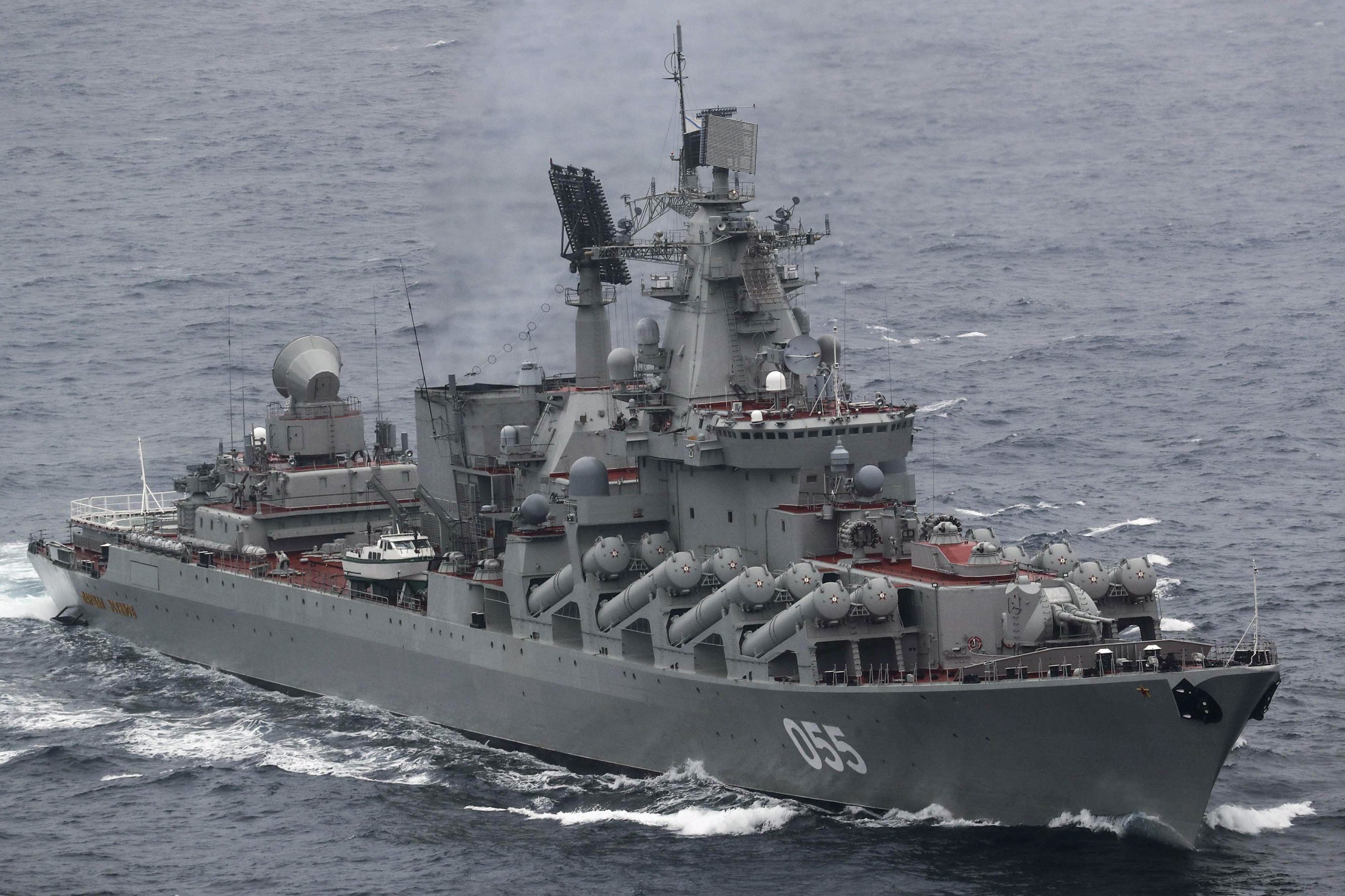
As we presented in the first part of the material dedicated to this highly relevant topic, the motive behind the formation of a multipolar world is the desire to coalesce a part of the world into a geopolitical and economic pole that competes with American unipolarity. The reasons behind the decisions of these entities or states to create a power pole capable of counterbalancing America’s and its allies’ dominance are complex and tied to the historical developments of the world after World War II.
For 45 years, the major victors of Germany and Japan, the USA and the USSR, led global affairs. However, subsequent historical developments have confirmed the rise of other states that are increasingly unwilling to accept the domination of the international stage by a single conductor. The beginning of this multipolar alternative is an organic process that has unfolded over the years but is also accompanied by its violent phases in which the global hegemon seeks to maintain influence and dismantle the competition that threatens the order it has established.
In the article “Decline Is a Choice,” published in 2009, American columnist Charles Krauthammer wrote: “For America today, decline is not a condition. Decline is a choice. Two decades after the birth of the unipolar world that emerged with the fall of the Soviet Union, America is in a position to decide whether to abdicate or to retain its dominance. Decline—or continued ascendancy—is in our hands.”
The article, a veritable crusade against the beginning of Obama’s presidency, predicted the changes that the new president would make during his term and especially criticized the lack of unipolar appetite exhibited by the new administration. In the mentioned article, America was referred to as the accidental hegemon, considering its history of isolationism and what Krauthammer labeled as a lack of instinctive imperial ambition. He also argued that America had saved Europe twice to defend and save the Western civilization to which it belonged, not because it projected itself as a hegemon.
The beginning of the multipolar world has several milestones, and China and Russia are the backbone of this construction. With the rise of Vladimir Putin in Russia and the beginning of recalibrating its new post-imperial status, there is also a strong economic growth in China, which retains its role as the world’s primary manufacturer but lays the foundation for its status as a global superpower, developing remarkable military capabilities and projecting its geopolitical influence around the globe. It should not be forgotten that, despite periods of calm and cooperation, China with the USSR, and later China with the Russian Federation, were ideological and military adversaries of the United States and the Euro-Atlantic pole. Both states shared the experience of communism, with China still being one of the few countries in the world that maintains the Communist Party as the sole party and communism as the only official state ideology.
However, the alternative pole could not coalesce without America’s weakness. Barack Obama is considered the American president who decided that the United States should not be the ‘world’s policeman,’ and starting with his second term, the Americans gradually withdrew from the role of global leadership or were not as prominent in pursuing their interests in the world. It was not a strategy of isolationism in the strict sense, but a strategy of withdrawal, which led to the United States being labeled as a ‘reluctant hegemon.’ The American public became more hesitant to expend American human and military resources in distant regions that were not as justifiable in terms of effort and tangible results. Many members of U.S. foreign policy and national security believed that the United States should end the ‘endless wars’ and pursue a strategy of restraint and reduced engagement. Such domestic political factors led U.S. presidents to reconsider the cost of maintaining the primacy of the United States.
The new approach created power vacuums in regions where America decided to reduce its geopolitical involvement and security commitments. The major powers, Russia and China, naturally sought to fill these voids, driven by an appetite to do so, and adopted offensive foreign policy positions, encouraged by the new reality.
The United States also called on its allies to assume more responsibility and resources for addressing their security concerns. Greater responsibility comes with greater economic and political burdens, and most U.S. allies were not prepared to shoulder these expenses. The European Union member states had to reassess their national security positions, sparking debates focused on strategic autonomy and the existence of a European army.
However, with Joe Biden’s presidency, America has reevaluated the new realities and quickly returned, at least in Europe, to the formula from NATO’s inception, adapted to the present circumstances: Russia out, USA in Europe; Germany down.
From the beginning of his term, Biden said, ‘The United States must regain the credibility and moral authority for which it was known in the world. It will take time to repair the devastating damage caused by the previous administration, but it is precisely what we will focus on.’
He also reaffirmed, in an online speech at the Munich Security Conference, the importance of the transatlantic partnership, promising that the United States would face common challenges together with its European allies, including the challenge posed by China. He also halted Trump’s plan to withdraw 12,000 American soldiers from the Federal Republic.
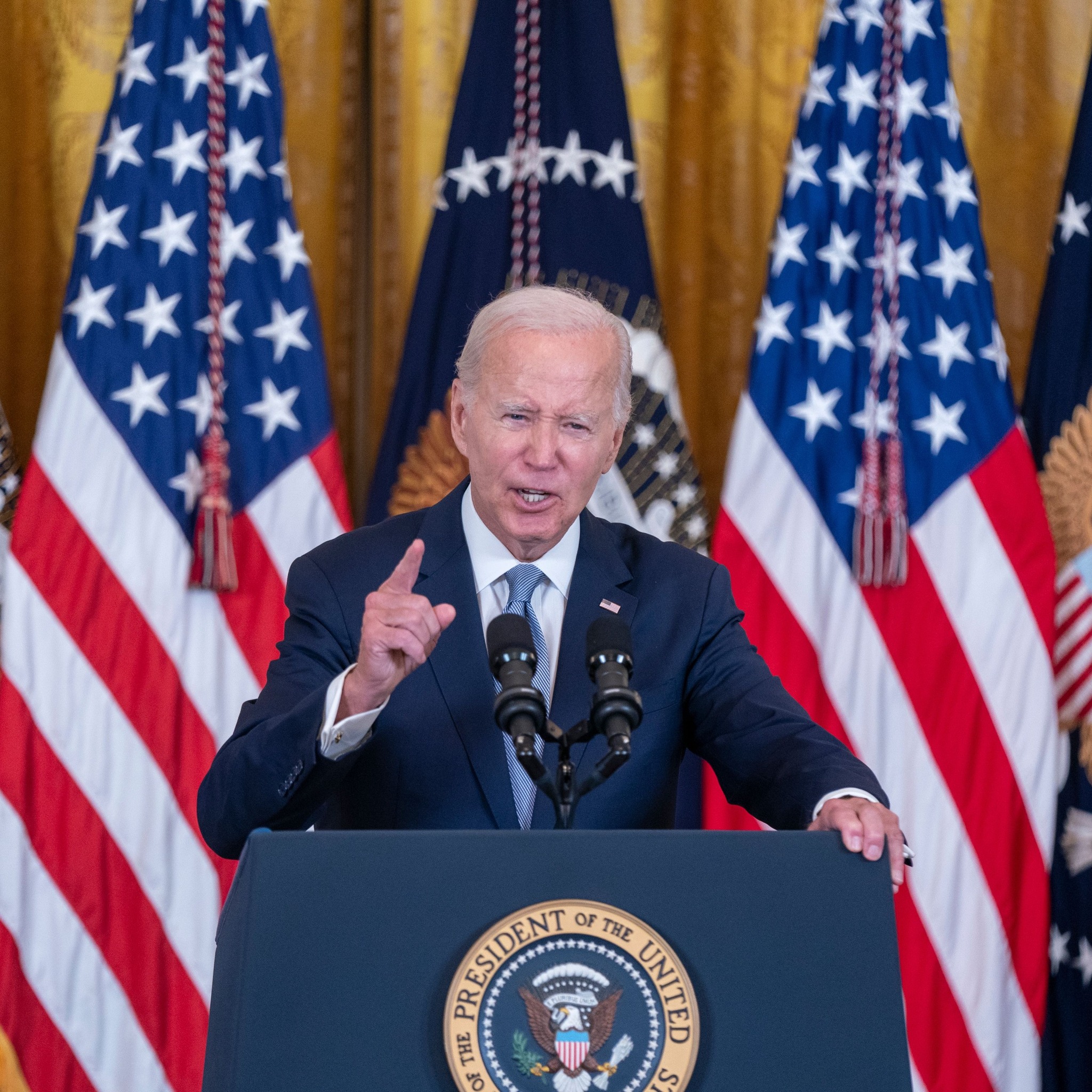
Multipolarity and Its Expressions
Multipolarity, in fact, signifies the emergence of other powers and regional blocs, such as India, Russia, the European Union, Japan, Brazil, and South Africa, which have their own interests, values, and agendas and cooperate or compete with each other in various fields for a common purpose.
Former French Foreign Minister Hubert Védrine, between 1997-2002, stated a decade ago: ‘Twenty years after the end of the USSR, a global order is not being formed, but rather competition within the deregulated and still inadequately regulated global economy, a free space for everyone, between states, enterprises, financial actors, and various interest groups, both legal and illegal. Alliances are ad-hoc among rising or declining centers of power.’ (…) The United States faces the challenge of recognizing that its leadership in the world is now only relative, and that its power must be exercised differently. Half of America refuses to do so.
The motivations of states such as China, Russia, and others from what is generically called the ‘Global South’ to break free from American unipolarity are complex, but the ideology that unites them posits a series of arguments that, in their view, pertain to a historical process that can no longer be ignored.
A multipolar world is different from a unipolar world, in which one state dominates the international system, different from a bipolar world, in which two states or blocs of states compete for power and influence, and different from a tripolar world, in which three states or blocs of states dominate the international system.
The impact of globalization and technological innovation has increased interdependence and connectivity between states and non-state actors, such as businesses, civil society, and international organizations.
The theory of a multipolar world argues that the challenges and opportunities of global governance, trade, security, climate change, human rights, and development require more dialogue, negotiation, and compromise among the poles of power and other actors to resolve conflicts and achieve common goals.
As a result, seven key pillars of the multipolar world have been identified:
- Energy Distribution – The first pillar of the multipolar world revolves around energy distribution.
- Economic Interdependence, as economic relationships are not limited to a few dominant players but encompass a wide range of nations and regions. Multiple economic powers stimulate trade and investment links globally, creating a complex network of economic relationships that contribute to global prosperity and stability.
- Cultural Pluralism – Cultural pluralism involves power dispersed among diverse actors, with a multitude of cultures, languages, and ideologies coming to the forefront. This cultural mosaic promotes an inclusive environment and respect for diversity. As societies interact and exchange ideas, a richer global tapestry emerges, challenging traditional notions of homogeneity and promoting cultural dialogue.
- Diplomacy and Multilateralism – In a multipolar world, diplomacy and multilateralism play a crucial role in managing complex international relations.
- Technological Advancements – Technological progress is essential in shaping the multipolar world. Rapid innovation and the diffusion of technology empower a wider range of actors to engage in global affairs.
- Security and Cooperation – Security and cooperation form another vital pillar of the multipolar world. With power distributed among multiple actors, the balance of power becomes dynamic and requires constant reassessment. Nations seek to build alliances, partnerships, and coalitions based on shared interests and mutual security concerns. Collaboration on issues such as counterterrorism, climate change, and nuclear non-proliferation becomes imperative to maintain global stability.
- Adaptability and Flexibility – Ultimately, adaptability and flexibility are key pillars in the multipolar world. Nations must be open to adjusting their strategies, policies, and alliances to successfully navigate the complex landscape of the multipolar world.
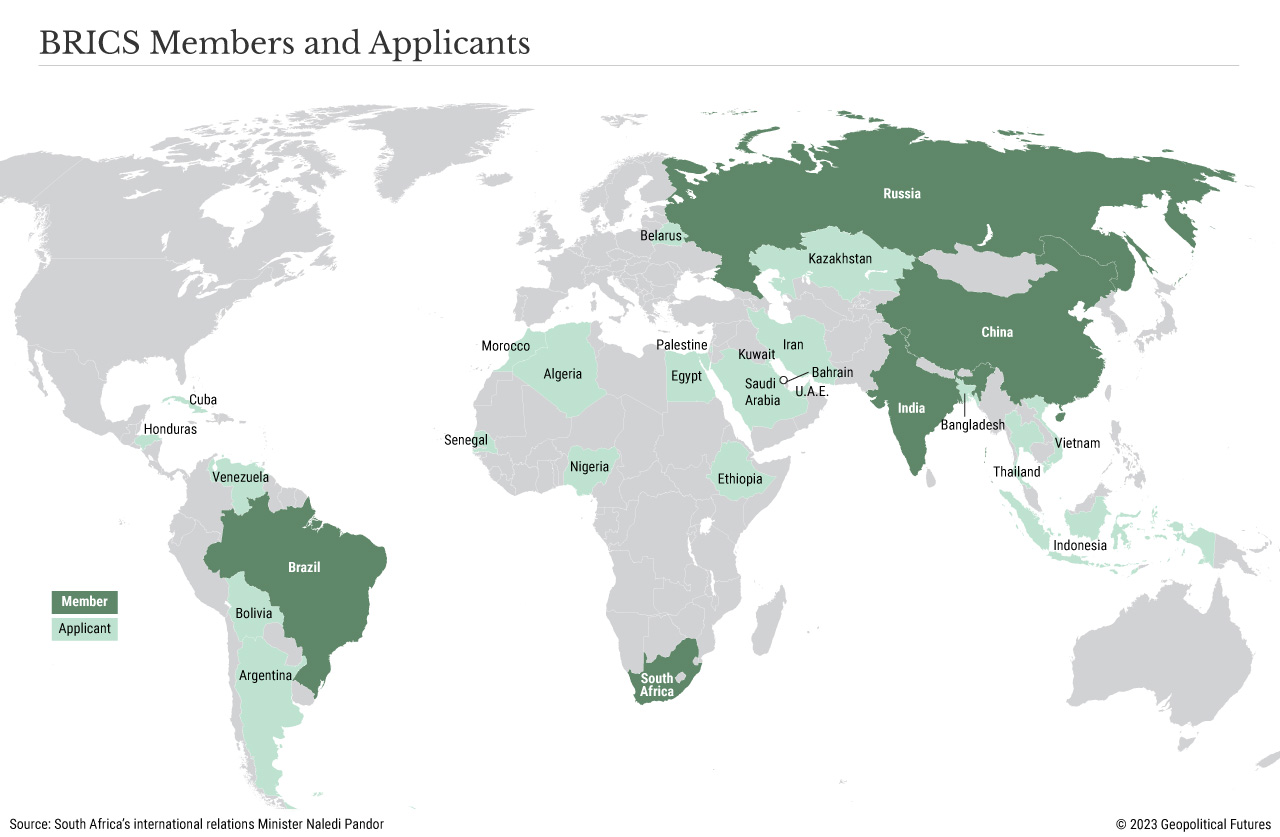
BRICS
BRICS, which stands for Brazil, Russia, India, China, and South Africa, is an acronym coined by economist Jim O’Neill of Goldman Sachs in 2001. Initially, it included only Brazil, Russia, India, and China (hence the original BRIC), with South Africa joining in 2010. O’Neill suggested that these four economies had the potential to dominate the global economy by 2050. Over the years, the economic power of these nations has inevitably translated into political power, leading to regular summits and concerted actions aimed at forming a global political and economic bloc.
The common declarations of BRICS articulate the general principles that underlie their cooperation. They emphasize respect for sovereignty, independence, territorial integrity, national unity, and non-interference in each other’s internal affairs. BRICS nations have committed to promoting peace, improving the global economic governance system, ensuring a fairer international order, and fostering sustainable development and inclusive growth. Each member state has its own reasons for supporting this project, initially driven by economic interests and later by the pursuit of global political power.
South Africa views its BRICS membership as an important vehicle for its foreign policy and an additional platform to increase its international influence.
Brazil sees BRICS as a platform to promote Brazil’s influence abroad and to build multilateral partnerships with other global powers, not just within the organization.
India considers the BRICS mechanism as a springboard for addressing development challenges in the Global South and, importantly, as a means to engage with China, a neighboring country with which it has numerous disputes, in an extended framework on issues of common interest.
For China, BRICS is a platform to expand its influence as a global power on the multilateral stage within the paradigm of multipolarity. Similarly, Russia, while committed to its own geopolitical projects aimed at restoring its position among the major BRICS powers, considers itself an advocate for reforming the global order, which has been dominated by the West, with the goal of making the international order fairer and challenging what it sees as Western hypocrisy and double standards.
What unites these states, despite their heterogeneity in terms of political regimes (from dictatorship, communism, democracy, authoritarianism, to monarchy), is two ideological motivations: anti-Americanism and anti-Westernism.
The proponents of multipolarity seek to include the multipolar spectrum as the basis of the current and future international system, consolidate BRICS as a global influencer, and attempt to de-dollarize a portion of the global economy, viewing the U.S. dollar as a principal instrument of American global dominance.
The Conflict in Ukraine and the Acceleration of Shaping the Multipolar World
America’s relations with Russia have been characterized as a unique “unipolar moment” in the history of the decade following the end of the Cold War. Subsequent evaluations have accused America of arrogance and narcissism in its handling of the relationship with the defeated party in the bipolar world. America’s governing elite failed to respect the interests of a weakened Russia and did not grasp Moscow’s potential for revenge. Representatives of the Clinton administration argued that NATO expansion was not an anti-Russia initiative and that there was no reason for Russia to fear it. However, the Russian political class perceived the opposite.
In her memoirs, Madeleine Albright confirmed that the decision to support expansion was made in June 1993, long before Russia took any aggressive actions against its neighbors. “We believed that NATO should remain at the center of the European security system,” she confessed. Furthermore, “it was correct for NATO to open its doors to new democracies, provided they met the same political and military standards as other members.”
As a result, the expansion of the most powerful military alliance still in operation after 1991, up to the borders of a Russia that had emerged from the ruins of the USSR, was interpreted as a hostile act by Moscow. NATO’s expansion, in what Moscow defined as Russia’s security buffer zone, and U.S.-led military interventions in the Balkans greatly dampened Russian enthusiasm for American values and created the perception that Russia would be increasingly hemmed in and encircled. Former U.S. Ambassador to the Soviet Union Jack F. Matlock Jr. stated regarding this matter: “The effect on Russian confidence in the United States was devastating.” Therefore, from Moscow’s perspective, Russia’s attack on Ukraine is seen as a consequence of distrust in America and the West, which are viewed as enemies that have not ceased to undermine the Russian nation and state.
With the Russian invasion of Ukrainian territory in the so-called special operation, the significance of the Kremlin’s decision goes beyond its stated motivations and extends to a conflict between American unipolarism and the multipolar alternative, with Russia relying on its allies. The reactions of a significant portion of the world’s nations to the conflict initiated by Russia have not leaned toward the majority condemnation as they did in the past but rather toward favorable neutrality.
At the United Nations General Assembly, approximately 40 countries (around 60% of the world’s population) refused to participate in condemning Russia. Concerning the BRICS countries (Brazil, Russia, India, China, and South Africa), they have taken different positions within the United Nations regarding the conflict in Ukraine. For example, in the vote to demand Russia’s cessation of its offensive against Ukraine on March 2, 2022, Brazil voted to condemn Russia, while the other BRICS members abstained. In the vote on March 24, 2022, to allow humanitarian access to the region, China and Brazil voted in favor of the resolution, while India and South Africa abstained.
This marks a return to a form of “non-alignment” by countries that do not necessarily agree with Moscow but do not want to be compelled to automatically support the Western-led America.
The current Russia-Ukraine conflict has not remained a local dispute between two former Soviet neighboring states but has expanded into an international issue due to the actions of the Washington-Brussels Axis. The involvement of the European Union in the conflict, through support with weapons, logistics, and funding for Ukraine, has had a direct impact on Europe, which bears the brunt of the consequences. The United States benefits economically from Russian sanctions. Without NATO support, Ukraine would have been defeated rapidly. However, Moscow’s goal seems to be not only the defeat of Ukraine but also wearing down Europe and increasing dissatisfaction among Europeans with the prolonged conflict.
If the war in Ukraine ends in a military impasse without a peace agreement or even a formal ceasefire (which seems increasingly likely), the EU and the US will maintain their sanctions against Russia for years if necessary. In practice, the world will witness a “mini Cold War” between, on one side, EU and NATO countries and their closest partners (such as Australia, Japan, New Zealand, and South Korea), and on the other side, Russia.
However, the West will continue to maintain its relations with China (no matter how difficult this compromise may be) even if Beijing continues its partnership with Russia.
Regarding whether the multipolar order begins at the Black Sea, it is expected that this clash between NATO and Russia will lead to a permanent reordering of the dynamics of geopolitical power in the 21st century through a ripple effect. This conflict is the litmus test of the current geopolitical confrontation, with Russia historically pivoting toward Asia and moving away from its orientation toward Europe being the great achievement of the multipolar project.
Although America, under Joe Biden’s mandate, is trying to maintain the continuity of the so-called “American century,” the data suggest that this war symbolizes a military stage in the creation of a multipolar world. This conflict, and especially its consequences, favor the rise of new emerging powers and strengthen the major players in the multipolar equation. Furthermore, China, whose global role is gaining prominence, through its non-alignment in sanctioning Russia and collaboration with Moscow, indicates that its actions are guided by long-term projects, with the same objective as Moscow: weakening the power of America and its allies.
While China is not openly involved in the Ukrainian conflict on anyone’s side, its use of economic instruments and discreet military aid acts as a form of “punishment” against its Western enemies or other allies of the United States.
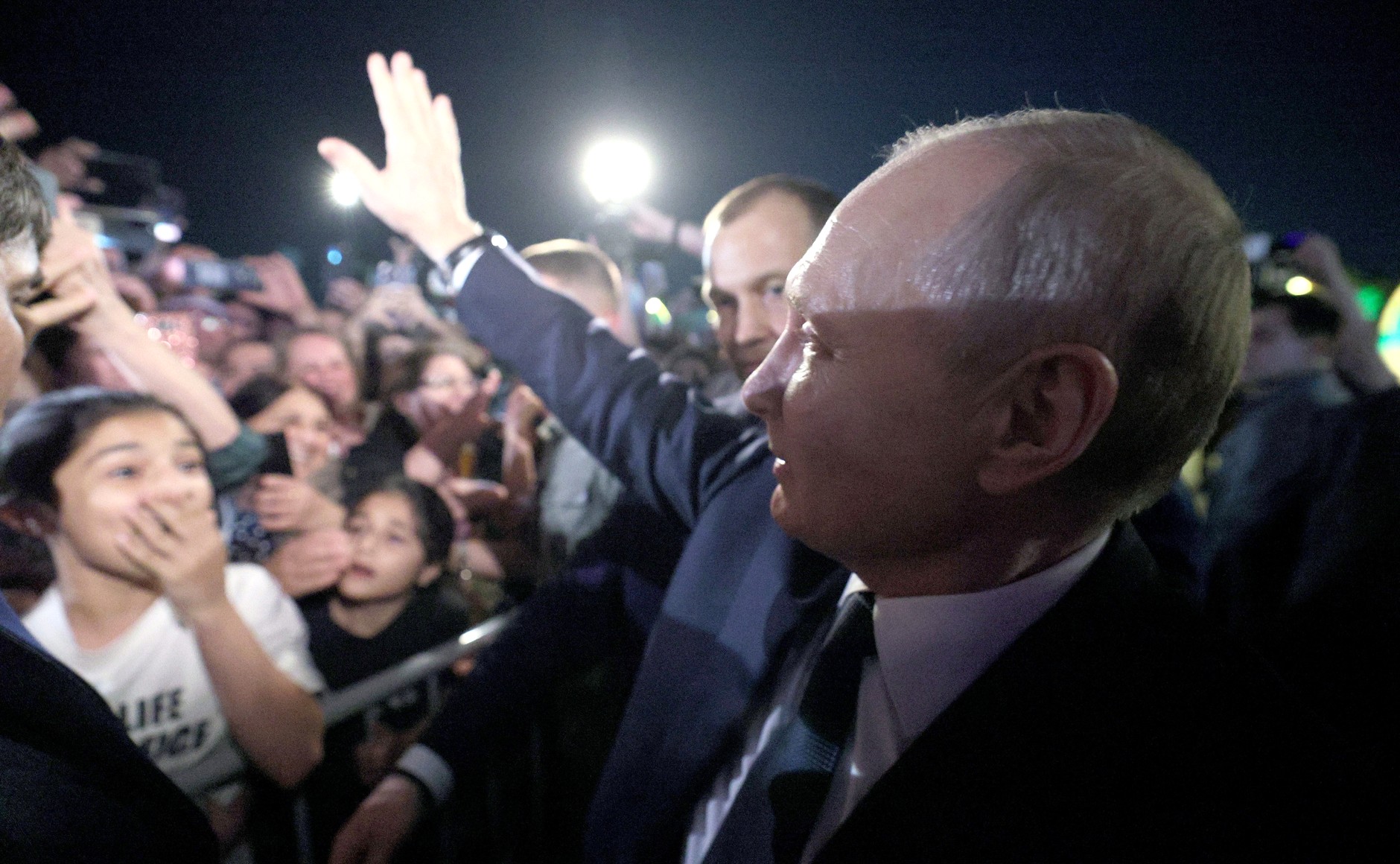
How viable is the multipolar world and how strong is American unipolarism?
Bekir Ilhan, an international relations analyst, in his article “ANALYSIS – The illusion of the multipolar world,” is skeptical about the prospects of creating a genuine multipolarity. He argues that Russia and China are not equal competitors to the United States because the economic and military power of Russia and China cannot match the reach and impact of America in the world. In Ukraine, he says, the Russian army, presented as the second-largest military power in terms of size, faced serious problems, despite substantial nuclear capabilities. China, on the other hand, even though its GDP surpasses that of the U.S., still has much to do to catch up with America, and its economic growth does not necessarily translate into equivalent military power. Furthermore, Ilhan sees China’s power projection capacity as limited for a potential global military power. At the same time, China has not yet developed a military doctrine that protects China’s global interests.
However, the argument of nuclear power in China and Russia remains essential, which will lead to “nuclear multipolarity,” certainly a significant factor in global geopolitical rivalry. The United States sees this as the most serious threat it will face by the 2030s. In this situation, the U.S. will have to deter two major nuclear powers simultaneously, Russia and China. This will be an unprecedented strategic balance that even surpasses the Cold War.
For the multipolar project, America’s return represents a significant obstacle because the Biden administration has departed from the withdrawal strategy pursued during the Obama and Trump eras and has become increasingly involved in global affairs. Biden’s speech, “America is back,” signaled a turnaround in American national security policy, and the unprecedented military aid provided by the U.S. to Ukraine against Russia strongly supports this shift.
Biden’s main concern has essentially been China, not the Russian Federation. Although there was fierce domestic political rivalry between him and his predecessor, Joe Biden did not deviate significantly from Trump’s approach to Beijing. Biden’s stance against China may not have been as bombastic as Trump’s, but it amplified the geopolitical and economic struggle with Beijing. He aimed to revitalize the cause of democracy worldwide and address the urgency of climate change, but it is possible that his and America’s ambitions may not find the desired followers in many parts of the world.
In his strategy of re-establishing America as a global leader, Joe Biden sought to rally U.S. allies to present a united front against a powerful and influential China on the world stage, determined to be a rule-setter rather than a rule-taker. However, America is the one setting the rules, which can only lead to conflict sooner or later.
The American President referred to Russia and China as two of the “biggest” issues in U.S. foreign policy. He called Russia “a country that wants to destroy our democracy.” China, on the other hand, is a threat to the U.S. because of its “great economic ambitions.” Joe Biden concluded: “We must act firmly but with diplomatic means.”
Critics of Biden challenge his hegemonic return policy as a misjudgment of geopolitical realities. Robert Gates, former Secretary of Defense under George W. Bush and Barack Obama, harshly assessed that Biden “has been wrong on nearly every major foreign policy and national security issue for the past four decades.” Biden supported many failed defense policies and rejected others that proved more successful, Gates wrote. He voted for the 2003 Iraq War but against the 1991 Gulf War. The latter, controversial decision led to the U.S. withdrawal from Afghanistan, arguably his greatest vulnerability in foreign policy, where he was seen as one of the most experienced American politicians with over 40 years of experience.
Returning to Bekir Ilhan’s article, he concludes by saying that the illusion of multipolarity stems from American strategic choices, not from the American system itself. The international system will remain unipolar, and unipolarity does not mean that the United States actually leads the world. Unipolarity means that no other major power matches the material capabilities of the United States. The United States has voluntarily stepped back from the role of the world’s policeman in recent years, giving rise to the illusion of multipolarity, which could be a trap for multipolar enthusiasm.

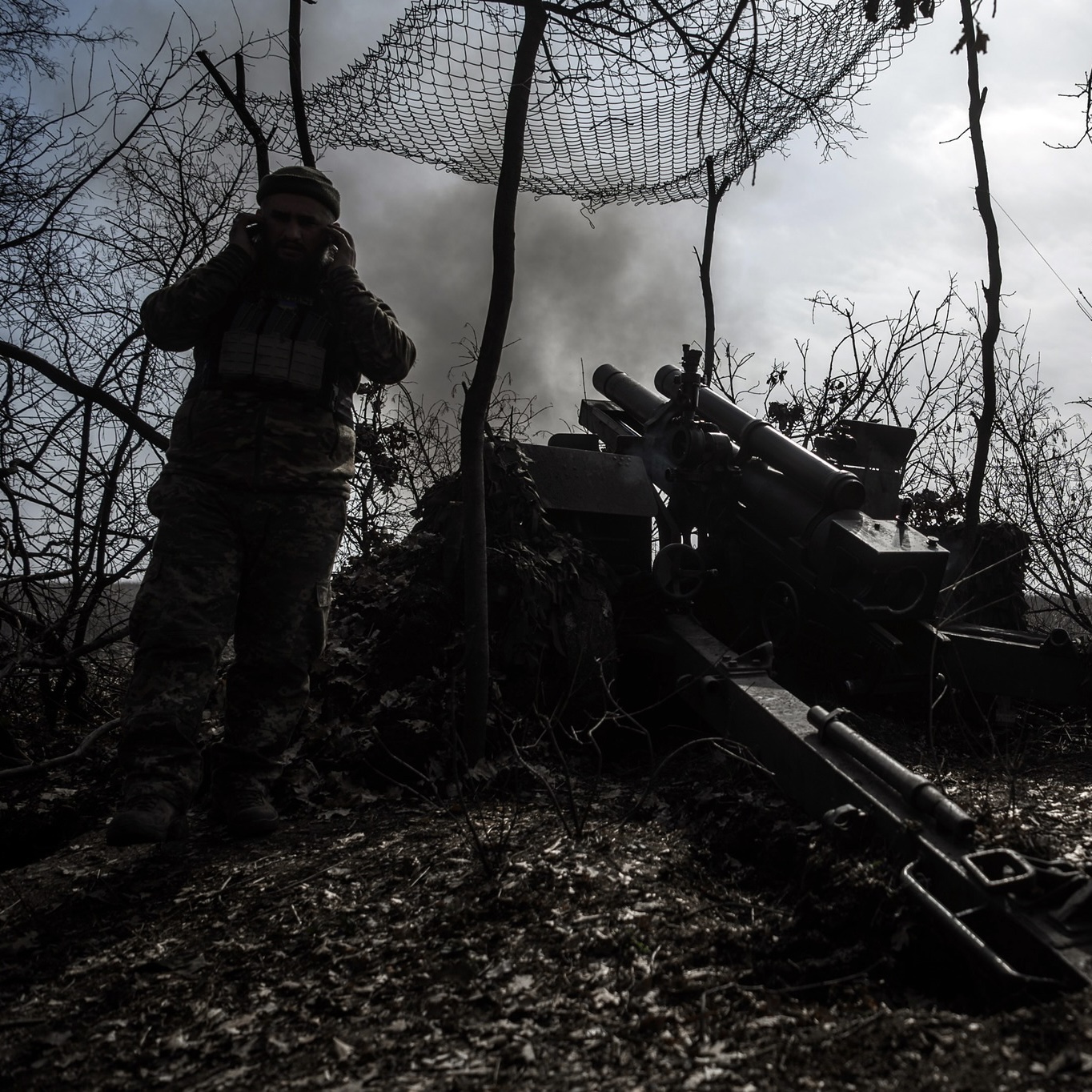
0 Comments